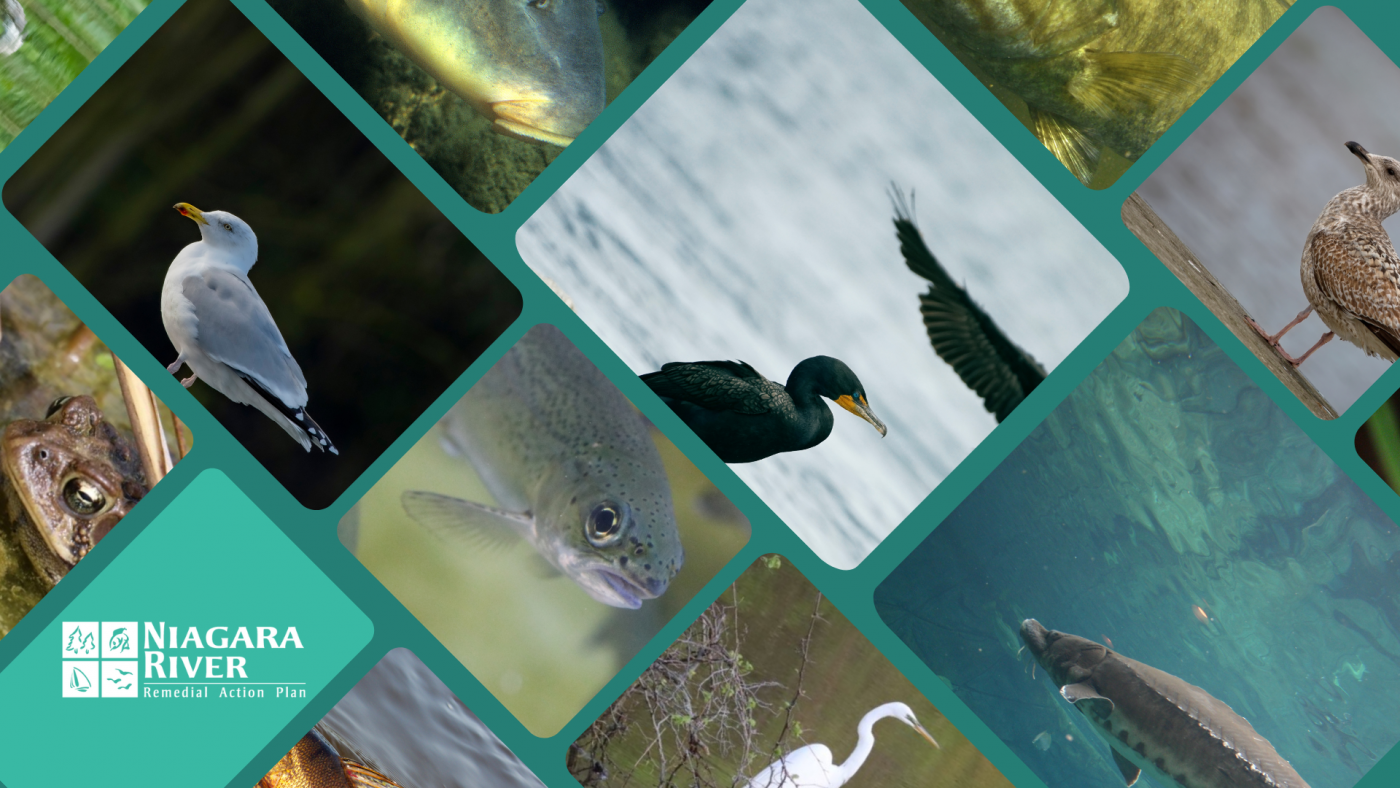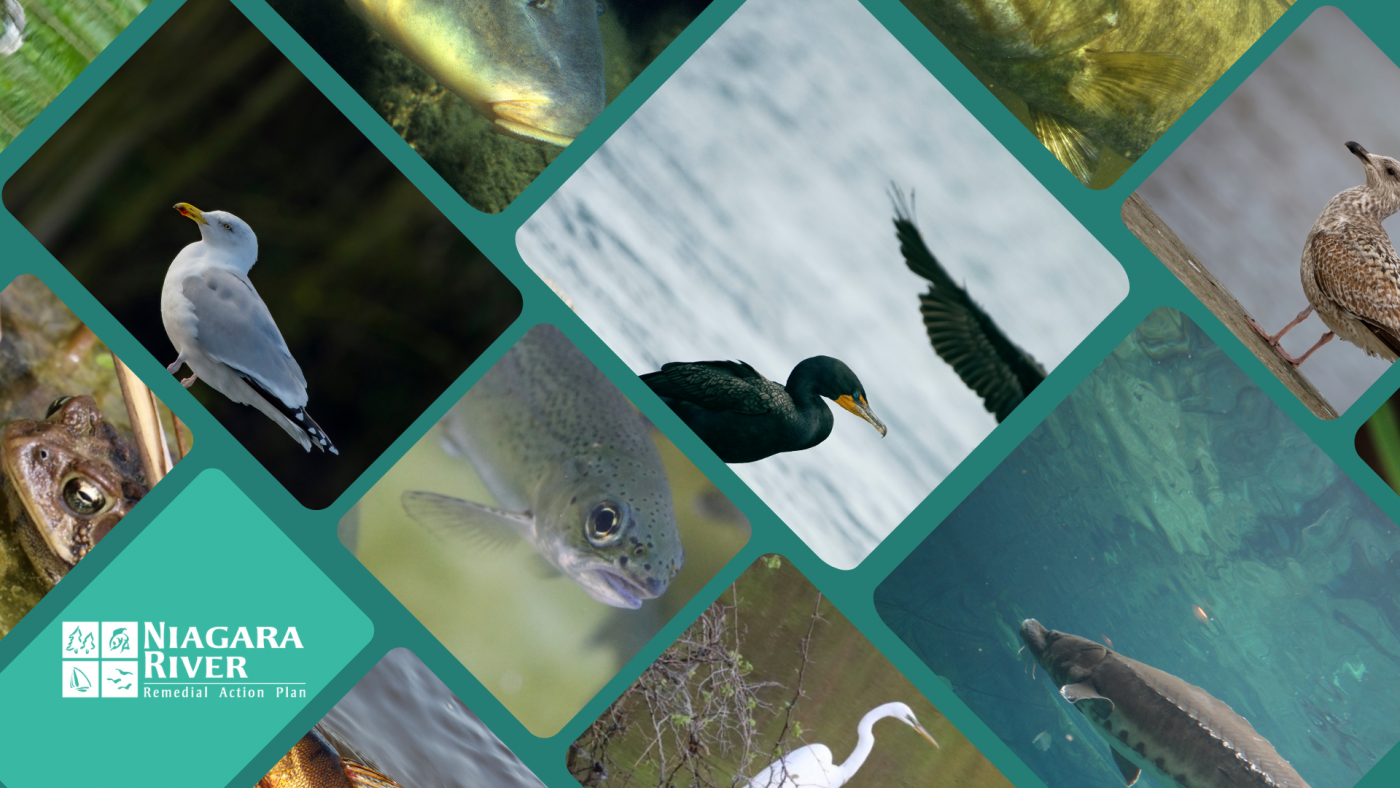Partners seeking community feedback to change status of environmental indicator
The health of fish communities and colonial waterbirds in the Niagara River has improved thanks to decades of work of local agencies and partners collaborating on the Niagara River Remedial Action Plan (RAP).
The RAP program relies on a suite of ecosystem indicators to track and address key environmental concerns that previously impacted the Niagara River such as poor water quality and degraded habitat.
The Niagara Peninsula Conservation Authority (NPCA), the agency that coordinates the RAP program with several local partners, is seeking public input on the recommendation to change the status of one of these indicators related to fish and wildlife populations.
A recent assessment report summarizing several monitoring studies indicates that all established goals for the ‘Degradation of Fish and Wildlife Populations’ indicator have been achieved. The RAP team is recommending that the status be changed to Not Impaired.
Key findings from the assessment report include:
- Fish communities of the Niagara River are healthy and diverse and similar to those of adjacent Great Lakes
- Fish population levels support recreational fishing
- Contaminant levels within fish-eating colonial waterbirds remain stable or have decreased over time and do not affect their populations or ability to reproduce
The Niagara River is not just a waterway; it is a lifeline for the community, offering countless beneficial uses for people and wildlife. Addressing environmental issues ensures the river continues to sustain life for all.
Community participation is important as the RAP program works towards officially declaring the Niagara River’s fish and wildlife populations as Not Impaired. Interested residents are encouraged to visit Get Involved NPCA to participate in this process. Additionally, they are invited to attend a webinar on May 14 at 7 p.m. (registration required). A short survey and online engagement tools are also available until May 31 and accommodation can be made upon request for non-virtual methods.
For more info on the Niagara River Remedial Action Plan: niagarariver.ca
Follow on Facebook and Twitter for more updates.
—30—
About the Niagara River Remedial Action Plan (RAP): The Niagara River was identified as one of 43 Great Lakes’ Areas of Concern in the late 1980s due to water quality and habitat problems. The Niagara River RAP program brings together various organizations to improve the river’s water quality and ecosystem health through implementing targeted monitoring and/or restoration efforts. The goal of RAP is to restore up to 14 environmental challenges in order to remove the Niagara River from the list of Areas of Concern. There are currently 4 remaining.
About Niagara Peninsula Conservation Authority: As a community-based natural resource management agency, the Niagara Peninsula Conservation Authority envisions a healthy and vibrant natural environment with shared greenspace and clean water for all.
NPCA’s work supports the conservation, enhancement and sustainability of healthy watersheds with programs and services that focus on drinking water source protection, flood and hazard management, endangered species protection, ecosystem restoration, community stewardship, education, and land management.
NPCA is the caretaker of 41 conservation areas within the Niagara Peninsula watershed held in public trust for recreation, heritage preservation, conservation and education. These natural and shared greenspaces marry nature, culture and adventure to create limitless opportunities for discovery.
Questions related to the above release should be directed to:
Erika Navarro
Communications and Marketing Specialist
Mobile: 905-650-4027
enavarro@npca.ca

